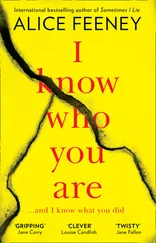* * *
HE’D BEEN GONE for about a year when Jennifer Jones moved into the house across the street from us. It was Labor Day weekend. On that Saturday I watched the movers unload a couch, covered in plastic, from the truck. As the men unloaded other furniture, our dog, Pip, was on his hind legs, pressed against the narrow window above the mail slot, frantically barking. “What’s he looking at?” said my mother from the dining room. The table was covered with paper—she had turned the room into a makeshift office.
“Someone’s moving into the Goldmans’ house,” I said.
“I’m glad it finally sold.”
The house was a stately Queen Anne in white clapboard with black shutters and a wraparound front porch that was typical of Cleveland Park. I always thought of our neighborhood as a community of giant dollhouses.
“Maybe they’ll let us use their pool,” I said. Several houses on our street had pools, but we were not well enough acquainted with the owners to have access to them.
“Don’t get your hopes up,” she said.
But my hopes were never up. Our house had no room for hope.
A brown Chevrolet station wagon with suitcases strapped to its roof pulled up in front of the house. Before the motor was off, a back door opened and a girl tumbled out. She had two neat braids that reached her shoulders. She was wearing blue shorts and a blue-and-yellow-striped polo shirt and carried a cage of some kind (later I’d learn that it contained her cat, Hexa). Pip couldn’t hold himself up anymore and dropped to all fours, but he continued to bark as he paced back and forth behind me.
“Pip, quiet,” I said. Silencing him was useless; he continued to yap. Like most herding dogs, he had a brittle nervous system. He was like my mother that way. The irony is that my parents got Pip because my mother thought she would feel safer and calmer with a dog. Instead his anxiety fed off hers and then his barking made her more anxious.
A man and a woman—presumably the girl’s parents—emerged from the front seats of the car. The woman had short, feathered hair and wore a white blouse with tiny red flowers embroidered around the collar. The man had glasses with thick tortoiseshell frames. The houses on that side of the street were on a hill, so they looked down on us. I watched the girl scamper up the long flight of steps to the front door. Later I’d count those steps; there were twenty-one. The sloping lawn on either side of them was impenetrable with ivy. The girl tried the door, then spun around impatiently to check her parents’ progress. “Come on!” I heard her shout. When her father reached the porch, she stepped aside to let him open the door. And then they were inside, out of sight. The movers were lugging stuff up the steps.
“There’s a girl,” I said. “She looks like she’s about my age.”
“You should go say hello.”
“Now?”
“Not now. Tomorrow maybe. Let them get settled.”
It wasn’t until Monday—Labor Day—that we actually met. I was walking Pip down the street when I heard a promising voice say, “Can I pet your dog?”
I turned around, and there she was. My new neighbor. “Sure.”
She came closer and crouched to extend a hand for Pip to sniff. “Like Lassie,” she said.
“Lassie was a collie,” I said. “My dog’s a Shetland sheepdog.”
“Mini-Lassie,” she said. “Boy or girl?”
“Boy. His name’s Pip.”
Pip allowed her to scratch him behind his ears. “I want a dog,” she said. “But my dad won’t let me get one.”
“I live across the street from you,” I said, and pointed at my house. It was pebbled stucco, charcoal gray with white shutters and a mansard roof. From the outside it looked normal.
“I’m Jenny,” she said. “I’m from Ohio. The Buckeye State.”
“Sarah,” I said. “I’ve never lived in a state.”
“What do you mean?”
“This isn’t a state,” I said.
“My dad says Washington, D.C., is the most important city in the world.” She had the zeal of a convert.
I shrugged. Washington was always more impressive to newcomers: the aspiring politicians at Georgetown University, the freshman representatives who traded state legislatures for the U.S. Capitol, the idealistic reporters determined to be the next Woodward and Bernstein, the tourists who sweated outside the White House hoping to spot the president. For those of us who lived there, Washington was not glamorous. It is a swampy city of wonks, a factory town where everyone—the lawyers, consultants, think-tank strategists, journalists, and diplomats—works in the same business. And the languid pace of life in the leafy enclaves of northwest Washington is so far from urban bustle that it’s hard to believe you’re in a city at all. Even then I knew I wanted to live in New York. I’d been there just once, but before my father had even hailed a taxi outside Penn Station, I remember thinking, Now, this is a real city.
Jenny had turned eight in June; I would be eight in November. We were both entering third grade at John Eaton. And when school started the next day, Jenny and I were in the same class. Our teacher, Mrs. Haynes, was a woman in her fifties who wore a pearl choker and blew her nose into monogrammed handkerchiefs. When she discovered that I had already met “the new girl,” she let us colonize adjoining desks. Jenny and I spent that first recess on the swings, where we exchanged information about our lives as we flew higher and higher.
Your sister died? she said as she moved through the air, her white kneesocks extending straight out over the blacktop.
Why did you move? I asked as I pumped my legs as hard as I could.
We covered the basics: Her father had been transferred from his consulting firm’s Dayton office; her mother was a nurse who hadn’t found a job in D.C. yet. Jenny had always wanted a sister; I had been cheated of mine. And so that’s it: we were friends. Jenny invited me to her house after school.
The Joneses had moved in only three days before, but already the boxes were unpacked. Books were on shelves, paintings were on walls. At my house there were boxes that my mother had not opened for years. Her dressing room was so cluttered that she had to climb over stuff to get to her closet. Our house was like a museum, filled with relics. She kept all of Izzy’s clothes stored in a trunk in her bedroom. There were piles of paper on every surface. The floors were covered with Oriental rugs that trapped dog hair and dust. My mother kept the curtains drawn—she felt safer that way—so our house was like a tomb. And the slightest provocation (a ringing phone, the arriving mail) was enough to send Pip into a frenzy.
Jenny’s house was bright and modern. Although it had been built at the turn of the century like ours, it had been renovated in the 1960s, and the kitchen opened into a spacious family room with lots of windows and skylights. The ceilings were high, and the rooms were sparsely furnished with midcentury pieces. It was a house that seemed to look forward, not back. The floors were polished wood, and Jenny slid around pretending to surf.
We went swimming that afternoon, and I can still remember my first glimpse of Jenny underwater. We sank beneath the surface in unison and sat cross-legged on the bottom of the pool in a breath-holding contest. She wore a canary yellow bathing suit and green goggles, and I could see her eyes open wide and staring at me, her rival. I had no goggles, but I forced my eyes open despite the sting of chlorine. From above, the pool looked glassy and hard, a surface that must be broken with force, but below, it was soft and beckoning, a membrane through which light sieved like sugar. The sunlight webbed across Jenny’s skin and through her hair, giving it a reddish tint, and the bubbles of air streaming from her nose added to the impressionistic effect. Suddenly she stretched her mouth open in a ludicrous way and stuck out her tongue. My laughter forced me up for air. “I win!” Jenny announced as she triumphed from below.
Читать дальше












